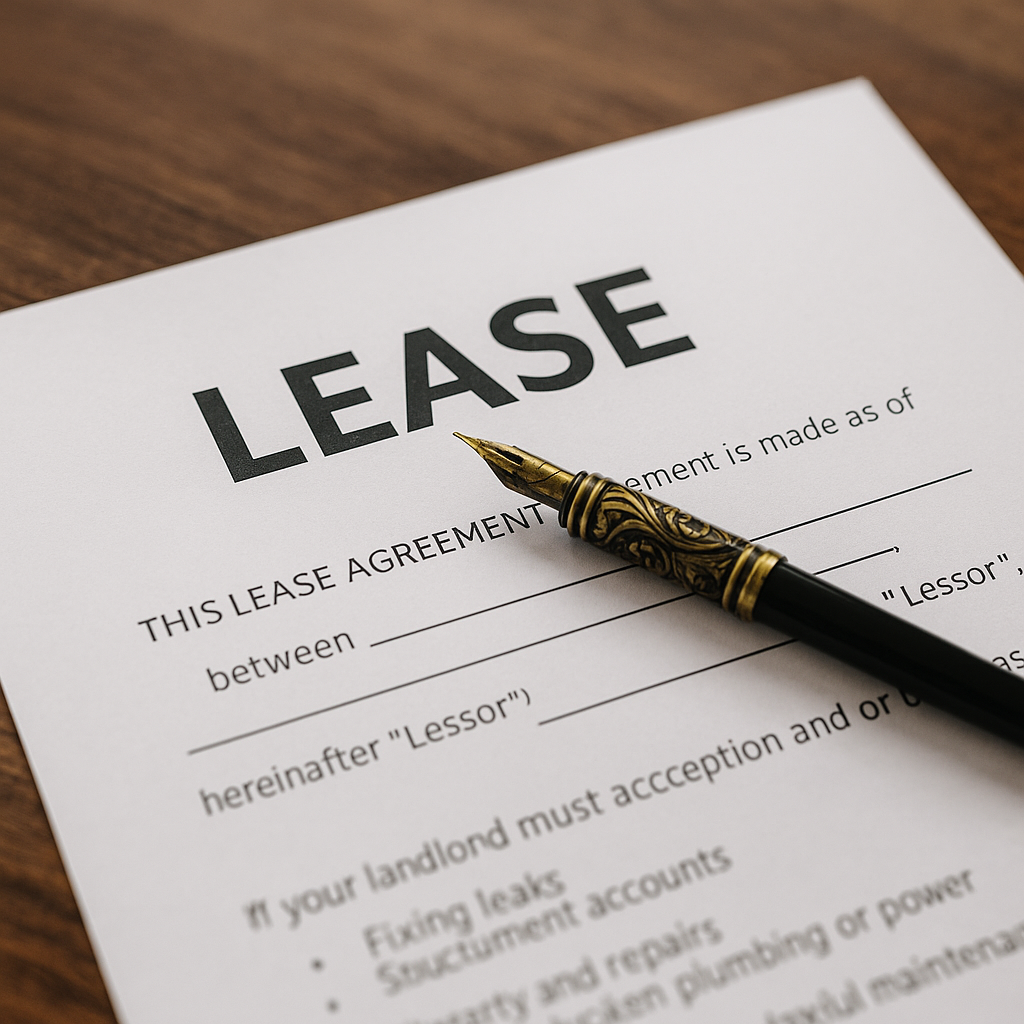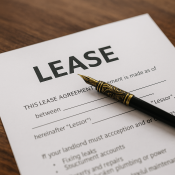
Before You Sign The Lease
Before You Sign The Lease: What Every Zambian Tenant Must Know About Their Rental Rights
By Brian Matambo, Journalist
For years, I’ve watched hopeful tenants walk into rental agreements armed with little more than verbal promises and blind trust. Months later, many of these tenants find themselves tangled in legal battles, staring down eviction notices, or fighting to recover withheld deposits. What they often don’t realise is that Zambia has a detailed law — the Rent Act, Chapter 206 of the Laws of Zambia — that protects their rights and provides a clear framework for landlord-tenant relationships.
Before you move in, hang your curtains, and call a property “home,” here’s what you must know to protect your interests and avoid falling into traps too many tenants before you have failed to see.
Understanding Standard Rent
The Rent Act introduces the concept of “standard rent,” a legally defined limit on how much a landlord can charge. This amount is not random. It’s calculated based either on what the premises were rented for as of 1st April 1968, or determined through a combination of construction cost and the land’s market value. If there is no record or way to determine either, the courts are empowered to set what they deem a fair rent based on comparable properties.
This matters because many tenants, especially in urban centres like Lusaka and Ndola, often find themselves paying rent significantly above what is legally fair. If you suspect your rent is excessive, you are within your rights to apply to the court for a formal rent determination. If your landlord refuses to provide a breakdown or proof of the rent’s legitimacy, that refusal in itself is an offence under the Act.
Rent Increases Must Follow the Law
Section 9 to 11 of the Rent Act make it clear: rent cannot be increased at the landlord’s whim. Increases are only lawful if they are triggered by very specific conditions — such as an increase in government-assessed property rates or when a landlord has undertaken actual improvements to the property, like structural renovations. Cosmetic touch-ups such as a coat of paint do not qualify.
Even when those conditions are met, the increase must be communicated in writing and include proper justification. Any rent hike done outside of this framework can be challenged in court, and the landlord risks not only refunding excess rent but also facing legal penalties.
Advance Rent Has Legal Limits
A common complaint among new tenants is the demand for three to six months of rent upfront. This practice, though widespread, is illegal. Section 10 of the Rent Act strictly prohibits landlords from demanding or receiving more than two months’ standard rent in advance.
Any advance paid beyond that threshold is recoverable, and demanding it constitutes a criminal offence. Tenants should always keep proof of payments made and ensure that rent terms are outlined in a formal written lease agreement.
Evictions Are Not a Simple Matter
Under Section 13, eviction is a highly regulated process. A landlord cannot simply issue a 30-day notice and reclaim the property. There must be lawful grounds, such as the tenant defaulting on rent, violating lease terms, engaging in illegal activity, or where the landlord or their immediate family needs the property for personal use. In the case of personal use, the landlord is required to provide at least 12 months’ notice.
Most importantly, eviction requires court approval. Even with justification, the court can delay the eviction to give the tenant reasonable time to relocate. Any attempt to forcibly remove a tenant without court sanction is illegal and punishable under the law.
You Are Entitled to a Rent Book
It is not just good practice — it is the law. Every landlord is required to provide a rent book, which must record the rental amount, payment history, and key details about the property and the parties involved. Refusal to maintain or issue a rent book is an offence under Section 19.
In disputes over missed payments or double-charging, this small document often becomes the tenant’s most powerful piece of evidence.
Landlords Cannot Harass Tenants or Cut Off Services
Acts such as shutting off water, locking gates, removing furniture from furnished homes, or sending intimidating agents to pressure tenants are all prohibited under Section 22. These forms of harassment are serious offences that carry penalties including fines and possible imprisonment.
Tenants facing such behaviour should report the incident to the Rent Tribunal or the Magistrate’s Court immediately and document every encounter, ideally with timestamps, photos, or witness statements.
Repairs Are a Landlord’s Responsibility
Unless specifically stated otherwise in the lease agreement, the responsibility for keeping the property in good condition falls squarely on the landlord. Section 24 states that landlords must maintain a habitable living environment, which includes plumbing, structural safety, and basic utilities. Tenants are only responsible for fair wear and tear or minor maintenance.
Subletting Without Permission is Prohibited
The Rent Act forbids tenants from assigning or subletting their rental property without the landlord’s written permission or the court’s approval. Violating this provision can result in lawful eviction, even if the tenant has maintained rent payments.
Final Thoughts: Read Before You Sign
The Rent Act is not just a technical piece of legislation — it is a shield for ordinary Zambians trying to live securely, with dignity and fairness. Yet, many tenants enter leases without reading a single clause or understanding the laws meant to protect them.
Before you commit to any property:
- Ask for the standard rent statement.
- Ensure you are issued a proper rent book.
- Demand a written lease agreement.
- Understand your rights concerning rent, eviction, repairs, and responsibilities.
Renting should never be a gamble. Educate yourself, demand transparency, and take control of your living situation.
Need Help or Advice?
If you find yourself in a dispute, do not suffer in silence. The Rent Controller’s Office and local Resident Magistrate’s Courts are there to help. Legal aid is available, and ignorance is no longer an excuse.



